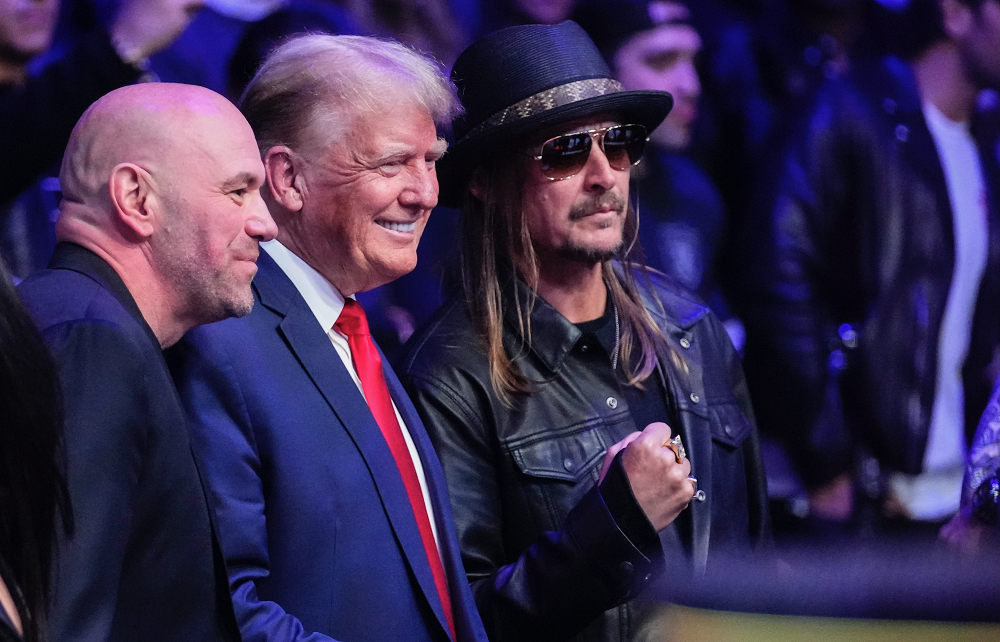Newsletter February 22, 2024
Will Young Men Vote for Trump in 2024?

Recent polling has shown unbelievable shifts among young voters. The New York Times found Biden losing the youth vote to Trump in a head-to-head matchup, despite winning these voters by 24 points in 2020. Such swings would represent a sudden and dramatic realignment in American politics—so there is good reason for skepticism. Young voters are generally left-leaning and have supported Democratic candidates by sizable margins in every election for more than two decades.
Biden will almost assuredly win young voters by a healthy, if more modest than 2020, margin. That’s hardly newsworthy. What interests me is the possibility that Trump could gain traction among young men, a group that has shown far less Democratic loyalty in recent elections. In the 2022 midterm election, 72 percent of young women cast votes for Democrats compared to 54 percent of young men.1
The 2020 election was even closer. Despite Trump’s unpopularity, only slightly more than half (52 percent) of young men voted for Biden while 41 percent supported Trump. In contrast, two-thirds (67 percent) of young women supported Biden.
The gender gap among young voters is a relatively recent phenomenon. In 2008, young men and women strongly backed then-candidate Barack Obama. According to exit polls, more than six in ten young male (62 percent) and young female (69 percent) voters voted for Obama.
Signal of a Broader Shift?
Although young men still vote Democratic, they have undergone a pronounced party affiliation shift in recent years. For much of the 21st century, young men have identified as much more Democratic than Republican. The Democratic advantage topped out during the early part of the Obama era. As of 2023, close to half (48 percent) of young men identified as Republican or leaned towards the Republican Party. A decade earlier, only 38 percent of young men identified as such.
This is not the only time in recent decades that Republicans have had an edge. Republicans had a small advantage with young men in the early 2000s, but it was fairly modest.
Despite the rightward movement, there are several caveats worth noting. First, despite increasing Republican identity, the same Gallup polling that shows young men shifting away from the Democratic party does not necessarily indicate they are becoming more conservative. In fact, they are ideologically diverse, with equal numbers identifying as liberal and conservative, while more than four in ten (44 percent) young men are politically moderate. Other polls show them as relatively left-leaning on questions of LGBTQ equality, climate change, and abortion.
What’s more, young men display little affection for the Republican Party. More than six in ten (62 percent) young men have a negative view of the GOP. But just about as many young men (61 percent) have an unfavorable opinion of the Democratic Party as well.
What distinguishes the politics of young men more than anything is their deep distrust of both political parties. Young men are uniquely disapproving of the political parties. Close to four in ten (37 percent) young men have an unfavorable view of both the Democratic and Republican parties. Your average Republican or Democratic politician is not someone most young men would be terribly excited about.
Trump’s Masculine Appeal to Young Men
Few public figures, let alone politicians, have worked so strenuously to cultivate an image of virility and manliness as Donald Trump. His admiration for authoritarian leaders, who are “very, very strong,” frequent attempts to dominate and emasculate his opponents, and aggressive bullying behavior are all meant to showcase his manliness.
Even as Trump has been mocked for his over-the-top bravado and criticized for his intemperate and aggressive outbursts, there’s reason to believe that this behavior resonates with young men. A survey we conducted a couple of years ago found that nearly one in four young men were taunted or teased when they were growing up for not being masculine enough, and nearly half of young men say being perceived as masculine is important to them.
That’s hardly the only reason young men are drawn to Trump. Late last year, he attended a Ultimate Fighting Championship (UFC) fight in New York, an event that commands considerable interest among young men. Trump’s well-choreographed entrance with Kid Rock, Tucker Carlson, and UFC president Dana White received a raucous reception. The YouTube event page was flooded with adulatory posts about Trump, featuring comments such as “Men with real men” and “A warrior in his own right.”
It was not Trump’s first UFC appearance either. Nor is his attendance at these events an accident. It’s an attempt to cultivate a persona. The Associated Press reports that the Trump campaign’s decisions to show up at these types of events serve to bypass traditional news coverage and appeal to less politically engaged (male) voters:
It’s a strategy that, aides say, puts him in front of potential voters who may not closely follow politics or engage with traditional news sources. And it is part of a broader effort to expand Trump’s appeal with young people and minority voters, particularly Latino and Black men, that the campaign hopes to win over in greater numbers after gains in 2020.
Trump has also demonstrated a tendency to side with men in cultural conflicts. In the early months of the #MeToo movement, Trump lamented about what rising public concern about sexual harassment would mean for men. In 2018, he argued that the empowerment of women constituted a threat to men:
It’s a very scary time for young men in America when you can be guilty of something you may not be guilty of. You could be somebody that was perfect your entire life, and somebody could accuse of something. . . . That’s one of the very bad things that’s taking place now.
His view is certainly shared by a significant number of men. Polls show that young men are far more ambivalent about the #MeToo movement than young women. In a 2022 Pew Research Center report, one 26-year-old young man said that he rejected the notion that all women should be believed because it denied men due process: “I do not support the idea of ‘believe all women.’ This country was built on innocent until proven guilty.”
Trump’s performative machismo works to his political advantage in large part because it comes at a time when traditional masculinity and masculine behavior are increasingly under attack. Meredith Conroy and Amelia Thomson-Deveaux chronicled Trump’s success in an article for FiveThirtyEight last year, writing:
[Trump has] been particularly adept at invoking the feeling among a chunk of American men and women that traditional forms of masculinity are losing power and convincing those people that he’s the candidate best positioned to defend them.
Given that nearly half of young men now believe that men face discrimination in American society, the attraction of these types of appeals becomes obvious.
The Trump’s Issue Advantage
It seems clear that the Republican Party has benefitted with young men because of the Democratic Party’s issue agenda more than anything else. Compared to young women, young men express much more ambivalence about the issues frequently championed by the Democratic Party. Young women are far more likely than young men to prioritize issues such as climate change, abortion, and LGBTQ rights. On abortion in particular, there is a pronounced gap between how much young women and young men care about the issue. In 2022, more than six in ten (61 percent) young women said abortion was a critical issue, ranking it higher than any other issue included in the poll. Only 33 percent of young men said it was a critical concern.
Young men tend to prioritize economic issues. They are concerned about the availability of good jobs, inflation, and the cost of college. Despite the recent positive indicators for the American economy, young people trust Donald Trump more than Joe Biden when it comes to making decisions about the economy.
At this stage, young men are not demonstrating the same type of political evolution that young women are experiencing. If young women have become much more liberal over the past few years, there is less evidence that young men are turning sharply to the right. Trump’s enduring unpopularity among young voters is good news for Biden, but there are plenty of young men who still like what they see in the former president.








